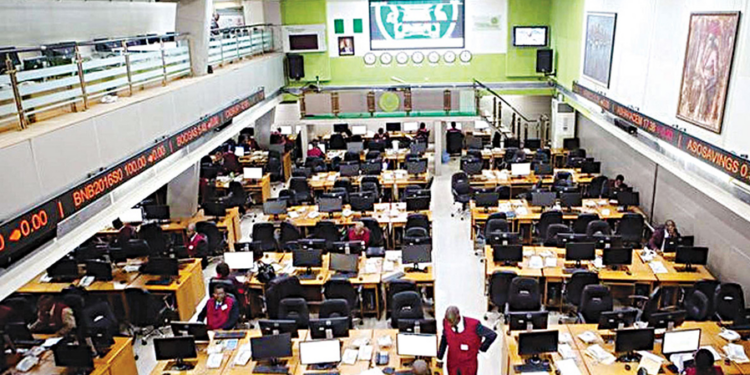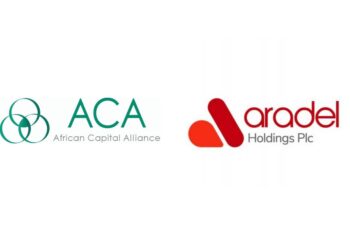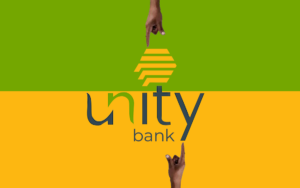Equities trading on the Nigerian Exchange Limited (NGX) concluded the first half of 2024 (January-June) with notable positivity, propelled by a notable surge in investor confidence directed towards listed corporations.
This exceptional performance stands as a milestone in NGX’s history, defying prevailing economic challenges such as elevated inflation, a depreciating exchange rate, and persistent security concerns.
The prevailing optimism manifested in discernible shifts in purchasing behaviour, culminating in the All-Share Index closed the half year at 100.057.49 index points by the end of the half year.
Moreover, the year-to-date (YTD) return of the NGX All-Share Index shows its resilience, standing at an impressive 33.81% despite recent bearish trends seen in Q2 of the year.
Mixed performances in the first two quarters of 2024
However, the equities market recorded mixed performances in the first two quarters of 2024 which made up the first half of the year.
The first quarter saw an impressive return of 39.84%, driven by strong company earnings, and positive dividend announcements and also propelled by the listing of Transcorp Power Plc, a subsidiary of Transcorp Plc on the NGX.
The company listed 7.5 billion shares at N240.00 per share by introduction on the Main Board of the Nigerian Exchange (NGX).
The power generation company’s listing boosted the overall NGX market capitalization by N1.8 trillion, just as its shares rose by 10% on the first trading day.
The market positive sentiment among investors during the quarter was also attributed to several factors, including favourable policies introduced by President Bola Tinubu’s administration such as the removal of fuel subsidies, streamlining of exchange rates and the floating of the naira.
By contrast, the second quarter experienced a decline, with returns falling to -4.31% as of the close of the last trading day of June 28th.
The sharp drop in the index was influenced by several policy announcements from the Central Bank of Nigeria (CBN). Notably, the CBN announced a new recapitalization plan for commercial banks, aiming to raise an estimated N4 trillion in fresh capital over the next two years.
The downturn was largely attributed to the higher interest rate environment, which has driven investors towards fixed-income securities, putting downward pressure on market performance.
Market performance
- Consequently, available statistics to the Nairametrics showed that the All-Share Index, which is the broad index that measures the performance of Nigerian stocks, opened the trading first half of the year at 74,773.77 index points at the beginning of trading on January 2, 2024, and closed at 100,057.49 points at the end the month on June 28, 2024, gaining 25,283.72 basis points or 33.81%.
- Further analysis revealed that activities on the Nigerian Exchange Limited (NGX) which opened the trading of the first half of the year at N40.917 trillion in market capitalization at the beginning of trading, closed the H1’2024 at N56.601 trillion, hence has earned a month-to-date gain of about N15.684 trillion.
Experts’ review
The Managing Director, of Arthur Steven Asset Management Limited, Mr. Olatunde Amolegbe in an exclusive chat with Nairametrics said that the expectation that the government policies will encourage the inflow of foreign investment was the primary trigger that is caused the stock market rally in Q1.
- “The second trigger will include the fact that some of these policies will lead to a short-term increase in inflation level and typically stock prices tend to rise along with inflation,” he said.
Amolegbe added said that a demographic shift has happened in the NGX in the last few years.
“We now have more local institutions and retail investors in the market than foreign portfolio investors. The reverse used to be the case, this shift has naturally reduced volatility in stock prices as the locals are likely to have more faith in the local market than foreigners,” he said.
By contrast, in the second quarter, the Managing Director, of Crane Securities Limited, Mr. Mike Eze in a chat with Nairametrics attributed the downturn to investors capitalizing on profits following the monetary policy rate hike of 26.25% from 24.75%.
He said with the further hike, investors will navigate towards the fixed income space because there is no sentiment when it comes to investment.
- “The purpose is for high return and stability of capital. There is no sentiment attached to it. Investors are navigated towards fixed income space because it is not favourable. Considering the current CBN MPC announcement on further hiking the rate to 26.25% there will be negative effects on the market,” he said.


























